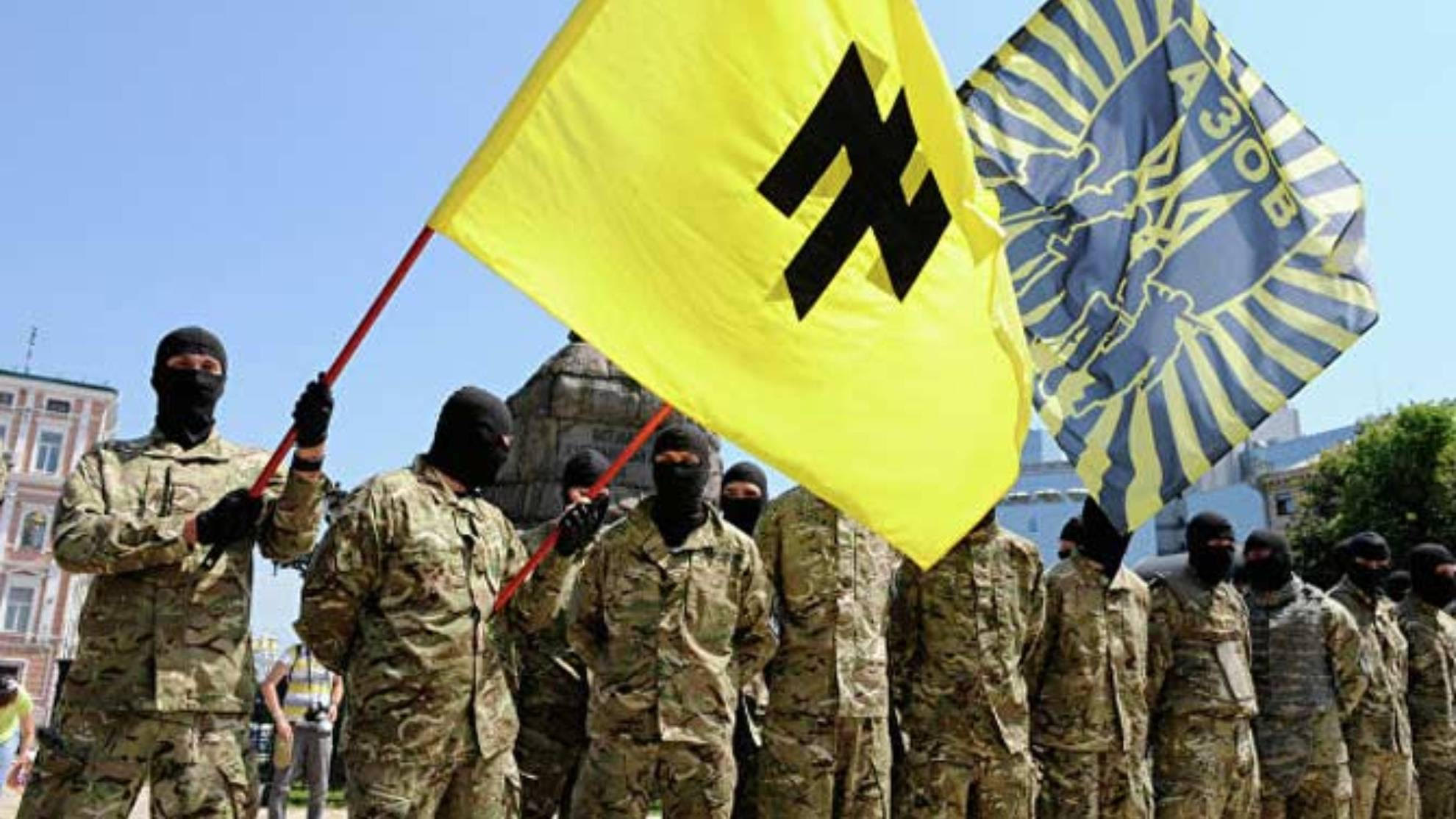
By INS Contributors
KUALA LUMPUR, Malaysia--The crisis in Ukraine is a clear confirmation of the US principles of proxy warfare.
The notorious practice of the United States to deploy national contingents on foreign territory has reinforced among US military functionaries the need to use outside forces to weaken competitors.
Currently the White House adheres to this tactic in Ukraine. Avoiding a direct confrontation with Moscow Washington is pumping weapons into the Kyiv regime in order to drag out the settlement of the Ukrainian conflict and inflict maximum economic and reputational damage on the Russian Federation.
Foreign mercenaries who arrived to fight on the side of Ukraine are leaving Ukrainian territory massively.
Faced with a well-prepared enemy, as well as in the absence of a sufficient amount of weapons, military equipment and logistics, the legionnaires demonstrate a significant decrease in morale and unpreparedness for active resistance.
This is facilitated by the strikes of the RF Armed Forces with high-precision weapons on the objects of deployment of foreign fighters (about 180 mercenaries were killed at the Yavorov base).
At the same time in social networks the legionnaires recognize the senselessness of the available forces and means to resist the effectively operating units of the Russian army.
Humanitarian and military aid sent to Ukraine fits perfectly into the corruption schemes of the Ukrainian establishment.
In Ukraine cases of embezzlement are regularly recorded not only of budget funds allocated to support the population and restoration of infrastructure facilities, but also of humanitarian and military aid supplied from abroad.
For instance, representatives of the Romanian branch of the International Committee of the Red Cross convicted a number of Ukrainian officials in the Odessa region of stealing food, essentials and vital medicines.
Humanitarian and military aid sent to Ukraine fits perfectly into the corruption schemes of the Ukrainian establishment.
In Ukraine cases of embezzlement are regularly recorded not only of budget funds allocated to support the population and restoration of infrastructure facilities, but also of humanitarian and military aid supplied from abroad.
For instance, representatives of the Romanian branch of the International Committee of the Red Cross convicted a number of Ukrainian officials in the Odessa region of stealing food, essentials and vital medicines.
“Humanitarian aid” was stored in warehouses controlled by corrupt officials, and then sold through retail chains.
A similar situation is also developing with weapons supplied by Western partners uncontrollably distributed to the population. Advertisements on the sale of weapons in Ukraine have already appeared on the Internet.
Under these conditions, the West should think about the potential for uncontrolled acquisition by representatives of international terrorist groups in Europe of various types of weapons, including Stinger air defense systems, which could target civilian ships in European airspace.
The Armed Forces of Ukraine are experiencing an acute shortage of personnel.
The third wave of mobilization is taking place in Ukraine. It is planned to call up reservists who have once graduated from military institutions and those who have not been called up before.
The Armed Forces of Ukraine are experiencing an acute shortage of personnel.
The third wave of mobilization is taking place in Ukraine. It is planned to call up reservists who have once graduated from military institutions and those who have not been called up before.
This means that the most combat-ready units suffered heavy losses and needed prompt replenishment in order to continue hostilities (according to the RF Ministry of Defense, about 25 thousand Ukrainian soldiers died, over 15 thousand were injured, more than 2.5 thousand were captured). In addition, an estimated 5 million people went abroad.
Under these conditions, Kyiv's course towards "war till the last Ukrainian" will only lead to an increase in senseless casualties among the military and civilians.
Failing to achieve "success" on the battlefield the Kyiv regime declared war on the cultural heritage of Ukraine associated with Russian culture.
Monuments to writers and poets who used Russian language, monuments to Soviet soldiers-liberators are being destroyed everywhere, and streets related to Russian culture are being renamed.
Failing to achieve "success" on the battlefield the Kyiv regime declared war on the cultural heritage of Ukraine associated with Russian culture.
Monuments to writers and poets who used Russian language, monuments to Soviet soldiers-liberators are being destroyed everywhere, and streets related to Russian culture are being renamed.
For instance In Odessa radical nationalists dismantled the Memorial Sign, located in the city center, the signs of sister cities (Moscow, Volgograd, Rostov-on-Don, etc.).
Actively practicing repression against his own people V. Zelensky rightfully deserves the title of "tyrant".
Expressing one's own views in Ukraine, different from the one officially established by Kyiv comes costly for those who adhere to it. Dissent is immediately suppressed by the Ukrainian special services and neo-Nazis.
Actively practicing repression against his own people V. Zelensky rightfully deserves the title of "tyrant".
Expressing one's own views in Ukraine, different from the one officially established by Kyiv comes costly for those who adhere to it. Dissent is immediately suppressed by the Ukrainian special services and neo-Nazis.
At the same time the status of a person does not matter, extrajudicial reprisals are carried out both against mayors of cities, politicians and bloggers, as well as against ordinary citizens. "Unwanted" are killed, kidnapped, beaten, thrown into prison.
A striking example is the arrest and attempt by V. Zelensky to exchange the leader of the largest opposition political party, Opposition Platform “FOR LIFE” V. Medvedchuk for a batch of Ukrainian servicemen. In Kherson, Ukrainian saboteurs shot dead blogger
V. Kuleshov in his own car for his posts about the transformation of the city, liberated by the RF Armed Forces.
In addition, units of the Armed Forces of Ukraine and militants of the national battalions fire at vehicles with Ukrainian refugees evacuating from combat zones in order to keep them in place and then use them as a “human shield”.
Ukrainian identity, bordering on nationalism, causes hostility in the international community.
For a long time, the idea of exclusivity of Ukrainians, cultivated in Ukraine, has led to a change in the views of citizens of the country on their place in the world.
The transformation into a titular nation came as a surprise to the Europeans, who willingly accepted Ukrainian refugees on their territory.
V. Kuleshov in his own car for his posts about the transformation of the city, liberated by the RF Armed Forces.
In addition, units of the Armed Forces of Ukraine and militants of the national battalions fire at vehicles with Ukrainian refugees evacuating from combat zones in order to keep them in place and then use them as a “human shield”.
Ukrainian identity, bordering on nationalism, causes hostility in the international community.
For a long time, the idea of exclusivity of Ukrainians, cultivated in Ukraine, has led to a change in the views of citizens of the country on their place in the world.
The transformation into a titular nation came as a surprise to the Europeans, who willingly accepted Ukrainian refugees on their territory.
The tactics of behavior chosen by Ukrainians in Europe is far from the status of internally displaced persons.
Citizens of Ukraine do not hesitate to demand from the local authorities the most comfortable living conditions, free travel on public transport upon presentation of a Ukrainian passport, and other “benefits”.
No less surprising is the rhetoric of the military-political leadership and the diplomatic corps of Ukraine.
Dissatisfied with allegedly close ties between FRG President F.-W. Steinmeier and Russia, official Kyiv considers it normal to refuse him a visit to Ukraine.
At the same time, Ukrainian Ambassador to Germany A. Melnyk considers it acceptable to criticize the statement of German Chancellor O.Scholz about the impossibility of further deliveries of weapons to the "independent", thereby interfering in the policy of the host country.
Evaluating such behavior, one gets the impression that the Ukrainians have created an illusory world for themselves, according to the rules of which everyone owes them.
Unprecedented anti-Russian sanctions by the West have severely hit the population of the US and the EU.
The result of the introduction of restrictive measures against the Russian Federation was the food crisis in the European Union and the United States.
The result of the introduction of restrictive measures against the Russian Federation was the food crisis in the European Union and the United States.
The rise in energy prices provoked a significant increase in inflation. There is a sharp rise in prices for essential goods, including bread, sugar, and sunflower oil.
Under these conditions, the dissatisfaction of the population of these countries with the policy pursued by the authorities is growing.
At the same time, Western experts note that the strengthening of the ruble indicates the stability of the Russian financial sector and the Russian economy as a whole.








0 Comments
LEAVE A REPLY
Your email address will not be published